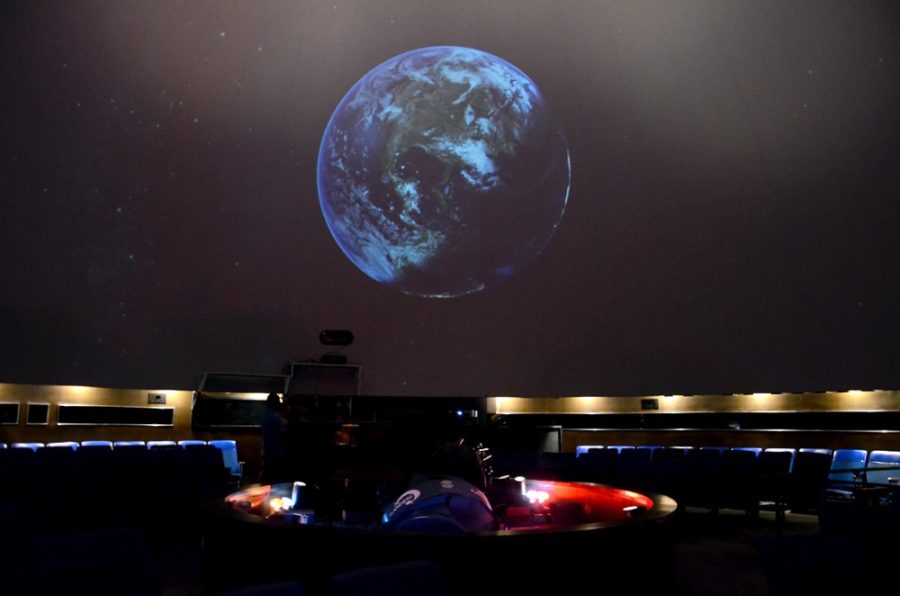Memories of grade school field trips to local planetariums can finally be substituted with the new, state-of-the-art FullDome Digital Projection System at the Flandrau Science Center and Planetarium.
Students will be able to take to the sky like never before with this advanced piece of machinery, which was installed over the summer, and will be unveiled for the first time this Friday evening.
The FullDome’s arrival introduces the Colorspace computer system to the U.S. for the first time. This system is a Swedish export that uses two projectors to combine images in a more precise and detailed fashion.
These visual effects will cover the entire planetarium dome, surrounding the audience in a cosmic blanket of stars and sky. In addition to these astounding visuals, a new sound system has been installed to showcase the latest audio technology that will add to space’s awe and majesty.
The primary imagery dataset, referred to as Digital Universe, uses data from several worldwide organizations — allowing a projection of an accurate and relatively complete 3-D atlas of the universe. From the immediate areas of space surrounding Earth to the far reaches of the unknown universe, the Digital Universe provides an immersive experience.
When the Flandrau Science Center first opened in 1975, it used a mechanical projector affectionately known as the Hector Vector Star Projector. Through nearly four decades of faithful service, Hector provided tours of the night skies to masses of people.
Much like the Colorspace system now, Hector was state-of-the-art when it was first introduced at the UA. Despite its storied past, Hector must step down and allow a new piece of technology to reside at Flandrau for the foreseeable future.
According to Shipherd Reed, the operations and communications manager of the Flandrau Science Center, the Flandrau Planetarium is currently screening exhibits that explore the versatile topography and biodiversity of the desert landscape. The arrival of the FullDome will introduce a new show lineup.
The FullDome debut runs from 4-10 p.m.. The show “Touring the Planets” starts at 4 p.m., “Magic Tree House: Space Mission” starts at 5:30 p.m., “Tucson Sky and Beyond” starts at 7 p.m., “Back to the Moon for Good” starts at 8 p.m. and “Pink Floyd’s Dark Side of the Moon” starts at 9 p.m.
Family-friendly science-related shows and demonstrations will also be on the exhibit floor, demos will be held in the Marine Discovery Lab, and a prize wheel, raffle and free telescope viewing are planned for the night.
“[UA students] can come see exhibits and planetarium shows … and they can see laser music shows [at the Flandrau Science Center],” Reed said. “In the months ahead, we’ll be adding more FullDome shows, too.”
—Follow Daniel Burkart @Daniel_Burkart









